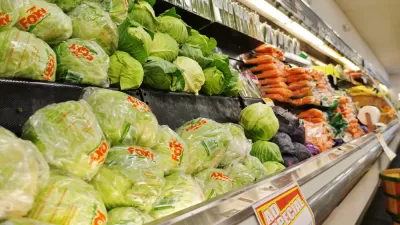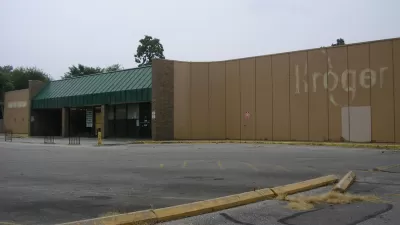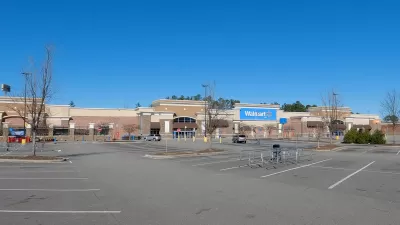Research indicates that opening a supermarket in an area that needs it is not enough. The ownership model and relationship to the community are essential to long-term success.

Catherine Brinkley at the University of California, Davis writes about her team’s research on the types of supermarkets that have successfully operated in food deserts. "A shuttered supermarket is more than just a business failure. It can perpetuate the food desert problem for years and prevent new stores from opening in the same location, worsening a neighborhood’s blight."
The researchers identified 71 planned supermarkets since 2000 in food deserts. "Of those, 21 were driven by government, 18 by community leaders, 12 by nonprofits and eight by commercial interests. Another dozen were driven by a combination of government initiative with community involvement," notes Brinkley.
They found that 22 of the community and nonprofit supermarkets opened and have continued operations. "In contrast, nearly half of the commercial stores and a third of the government developments have closed or didn’t it make it past planning. Five of the government/community projects also failed or were canceled," says Brinkley.
They also found that most of the community supermarkets, 16 of 18, operated as cooperatives and promoted community engagement and involvement. "The success of a supermarket intervention is predicated on use, which may not happen without community buy-in. Supporting cooperatives is one way to ensure that shoppers show up," adds Brinkley.
FULL STORY: Why community-owned grocery stores like co-ops are the best recipe for revitalizing food deserts

Planetizen Federal Action Tracker
A weekly monitor of how Trump’s orders and actions are impacting planners and planning in America.

DARTSpace Platform Streamlines Dallas TOD Application Process
The Dallas transit agency hopes a shorter permitting timeline will boost transit-oriented development around rail stations.

Congressman Proposes Bill to Rename DC Metro “Trump Train”
The Make Autorail Great Again Act would withhold federal funding to the system until the Washington Metropolitan Area Transit Authority (WMATA), rebrands as the Washington Metropolitan Authority for Greater Access (WMAGA).

Supreme Court Ruling in Pipeline Case Guts Federal Environmental Law
The decision limits the scope of a federal law that mandates extensive environmental impact reviews of energy, infrastructure, and transportation projects.

Texas State Bills to Defund Dallas Transit Die
DART would have seen a 30% service cut, $230M annual losses had the bills survived.

Bikeshare for the Win: Team Pedals to London Cricket Match, Beats Rivals Stuck in Traffic
While their opponents sat in gridlock, England's national cricket team hopped Lime bikes, riding to a 3-0 victory.
Urban Design for Planners 1: Software Tools
This six-course series explores essential urban design concepts using open source software and equips planners with the tools they need to participate fully in the urban design process.
Planning for Universal Design
Learn the tools for implementing Universal Design in planning regulations.
Roanoke Valley-Alleghany Regional Commission
City of Mt Shasta
City of Camden Redevelopment Agency
City of Astoria
Transportation Research & Education Center (TREC) at Portland State University
US High Speed Rail Association
City of Camden Redevelopment Agency
Municipality of Princeton (NJ)





























